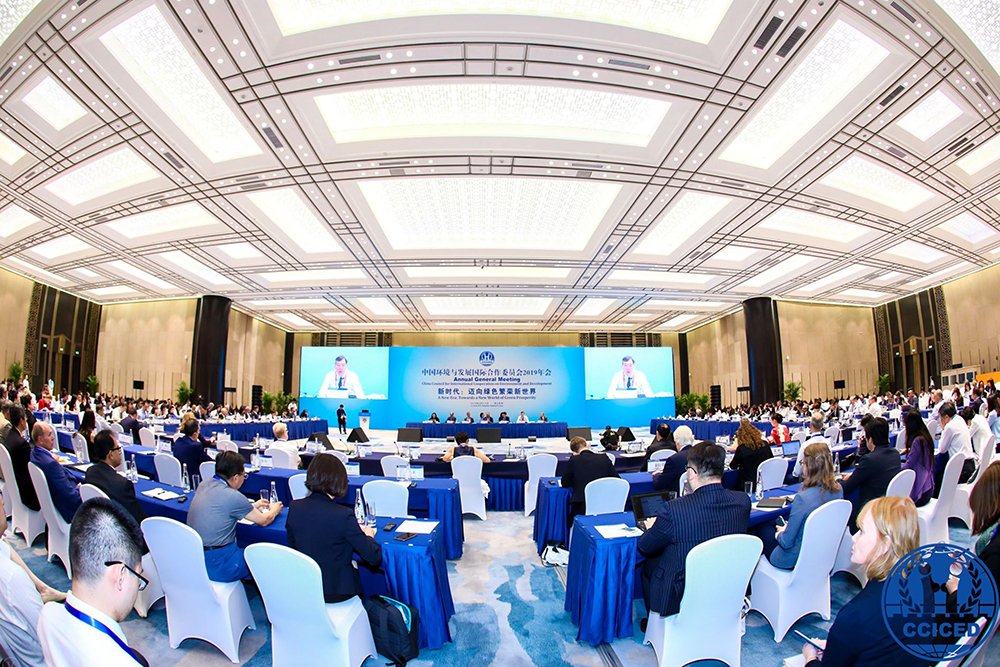Summary

The 2019 Annual General Meeting (AGM) of the China Council for International Cooperation on Environment and Development (CCICED) opened at the Hangzhou International Expo Center, China, on Sunday. The meeting began in the morning with the presentation in plenary of research findings from eight CCICED Special Policy Studies, conducted under the aegis of its four task forces.
Liu Shijin, CCICED Chinese Chief Advisor, and Scott Vaughan, CCICED Chief International Advisor and former CEO, International Institute for Sustainable Development (IISD), co-chaired the opening plenary.
Vaughan expressed warm appreciation for the efforts of all concerned, and Liu invited comments from participants.
Under Task Force 1 on global governance and ecological civilization, speakers presented findings and recommendations of their studies on: global climate governance and China’s role; post-2020 global biodiversity conservation; and global ocean governance and ecological civilization.
Under Task Force 2 on green urbanization and environmental improvement, they presented on: green urbanization strategy and pathways towards regional integrated development; ecological compensation and green development institutional reform in the Yangtze River Economic Belt; and goals and pathways for environmental improvement in 2035.
Under Task Force 3 on innovation, sustainable production and consumption, findings and recommendations from an SPS on green transition and sustainable social governance were presented.
Under Task Force 4 on green energy, investment and trade, they discussed efforts toward the Green Belt and Road Initiative (BRI) and achieving 2030 Sustainable Development Goals (SDGs).
Participants then provided feedback and made further suggestions on these topics. Discussions highlighted many examples of good practice, as well as opportunities for improvements in policy and practice.
In the afternoon, they engaged in focused discussions in six open forums. Many participants highlighted the need to adopt a systems approach that will allow for cross-cutting and multi-stakeholder approaches to problem solving.
In the evening, invited guests attended a gala dinner hosted by CCICED.